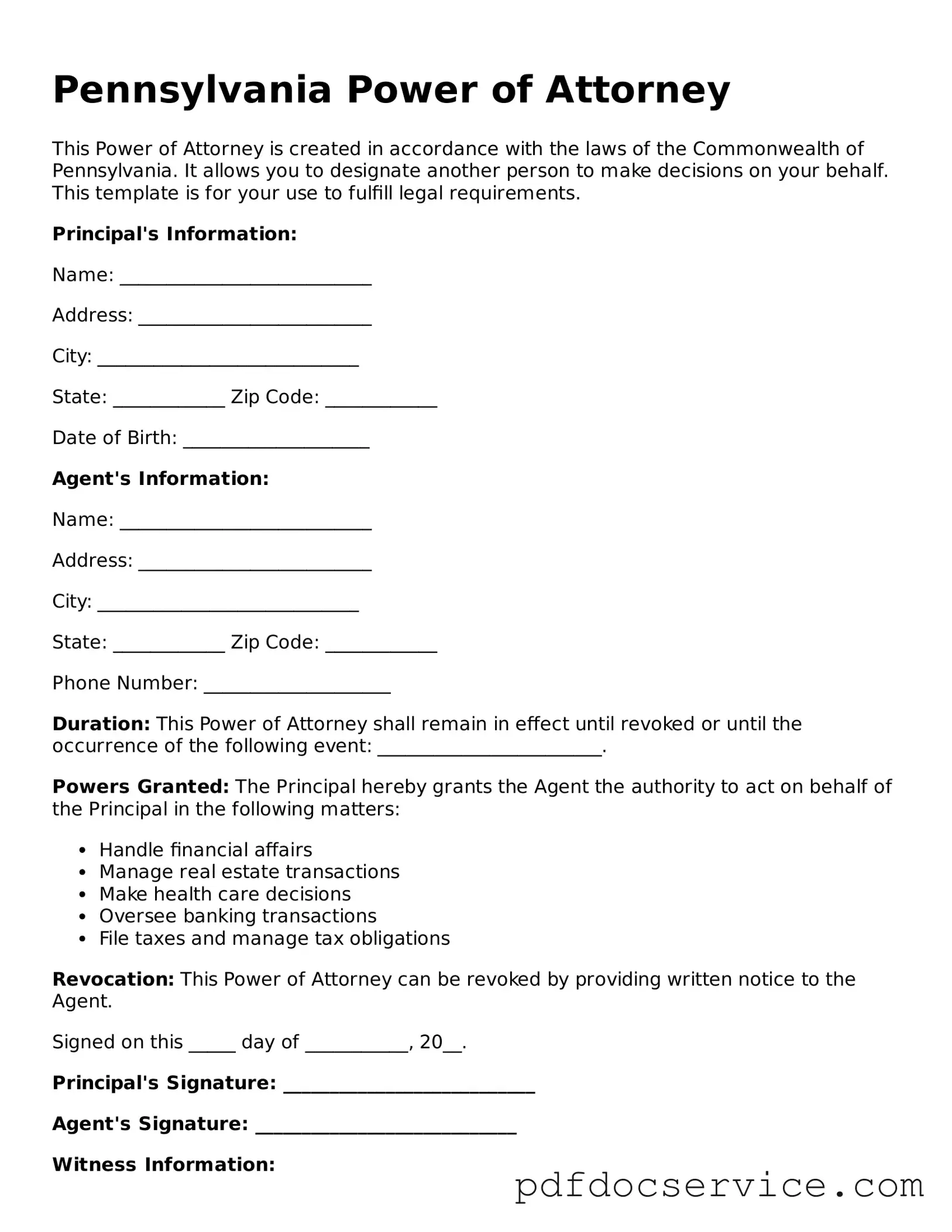Printable Power of Attorney Template for Pennsylvania
The Pennsylvania Power of Attorney form is a legal document that allows you to appoint someone to make decisions on your behalf, especially regarding financial and healthcare matters. This tool is essential for ensuring that your wishes are honored when you cannot communicate them yourself. Understanding how this form works can empower you to take control of your future.
Open Power of Attorney Editor

Printable Power of Attorney Template for Pennsylvania
Open Power of Attorney Editor

Open Power of Attorney Editor
or
Get Power of Attorney PDF
Finish the form now and be done
Finish Power of Attorney online using simple edit, save, and download steps.